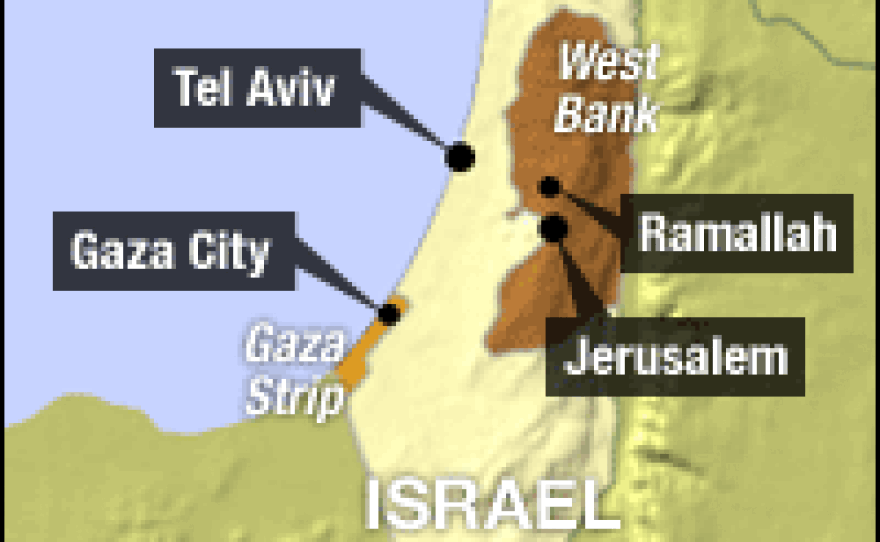
With the exception of some wounded Palestinians admitted to Egyptian hospitals — and several truckloads of medical supplies headed into Gaza — the Gaza-Egypt border is locked down.
But many Egyptians want their government to do much more for the Gazans — instead of keeping them contained while the Israeli air barrage continues — and some are sharply critical of their government's response to the crisis.
On Monday, long, painfully slow lines formed at police checkpoints along the highway that runs through the Sinai Peninsula to the Gaza border, as nearly every vehicle was searched, and all passengers were checked for documents.
An official in Cairo said the heightened security measures were prompted by the Palestinians who managed to get over the border wall into Egypt during clashes with Egyptian border guards Sunday.
The government also suspended permissions for journalists to get close to the border area.
Meanwhile, long convoys of government vehicles carrying hundreds of members of the security forces headed toward the border.
Egyptian officials have said that maintaining the integrity of a country's borders is the right of any sovereign state, but many in Egypt are acutely embarrassed to see Egyptian forces helping to keep the Palestinians in Gaza penned in while the Israeli assault expands.
At a truck stop not far from one of the backed-up checkpoints, drivers watched television coverage of a huge anti-Israel — and frequently anti-Egyptian — demonstration in Beirut.
Truck driver Rafat Imam says he isn't surprised by the anti-Egyptian sentiment around the Arab world. He says he, too, thinks the Egyptian government has a moral duty to help the Palestinians — and in his view, it's failing.
"It's shameful what's happening over there. Egypt has it in its power to do many things to help. The first thing it has to do is to open the border and allow the wounded to get medical treatment. That's the least we can do," Imam says.
The condemnations of Egypt have been spearheaded by Iran and Syria, and by the Iranian-backed Hezbollah militia in Lebanon. Hezbollah leader Hassan Nasrallah called on Egypt to open the border.
"All we are asking for from the government of Egypt and the leaders of the Arab world is if you are incapable of stopping this aggression, then the least you can do is provide the materials needed for the people of Gaza to survive, resist and persevere. And I promise their fate will be victory," Nasrallah said.
Many Egyptians suspect that their country's leaders — given their fierce and longstanding opposition to Islamist parties — have no desire to see Hamas victorious.
No such hostility toward Hamas exists in the Sinai, however, where living conditions occasionally resemble those in the Palestinian territories. Just like the West Bank, there are young entrepreneurs here trying to sell goods to people stuck at checkpoints.
As the wind whips across his dusty bottles of shampoo, Ahmed Hanafi, 21, grows passionate when asked what should be done for the people of Gaza.
"The Egyptian government is doing nothing," he says. "We wish they'd give us weapons so we could go fight over there. I, myself — I don't have a kid, I would go."
But another, older vendor interrupts to say that Egypt isn't the problem.
"The real danger is Iran. Hamas takes its orders from Iran. It's a bigger danger than Israel," he says.
Everyone here agrees that Egypt has to do something to help the Palestinians, but it's still unclear what.
Copyright 2022 NPR. To see more, visit https://www.npr.org. 9(MDAzMjM2NDYzMDEyMzc1Njk5NjAxNzY3OQ001))







